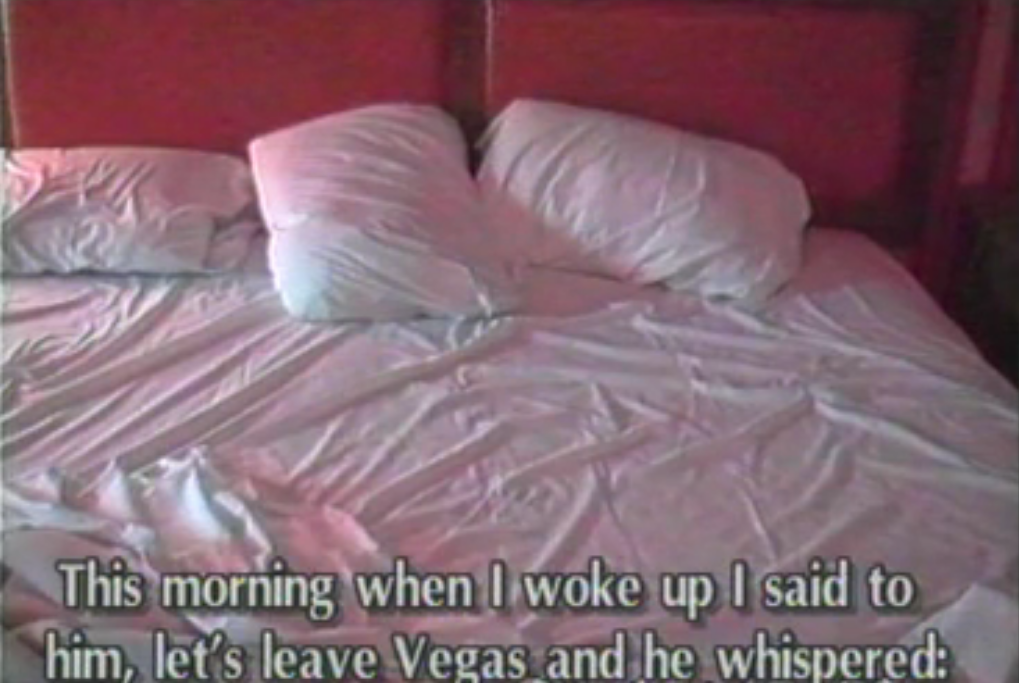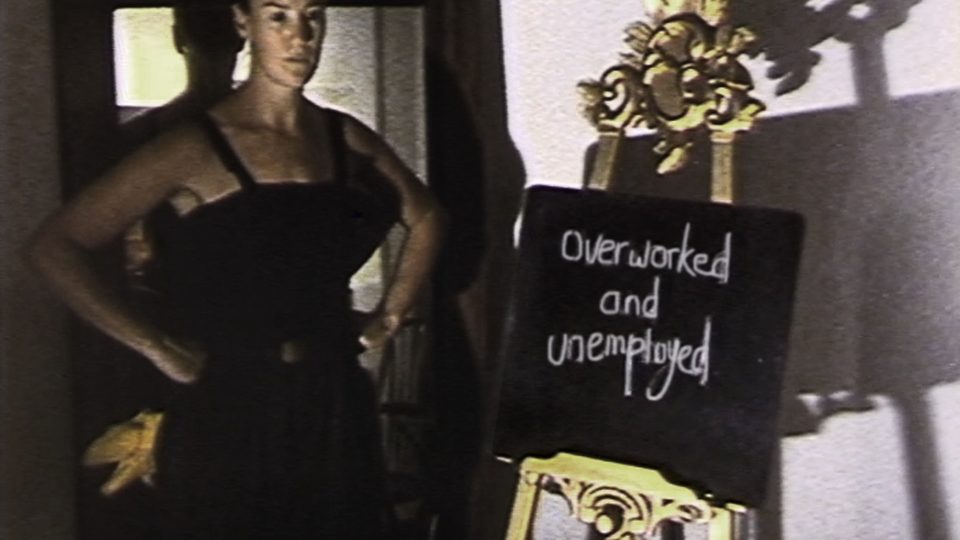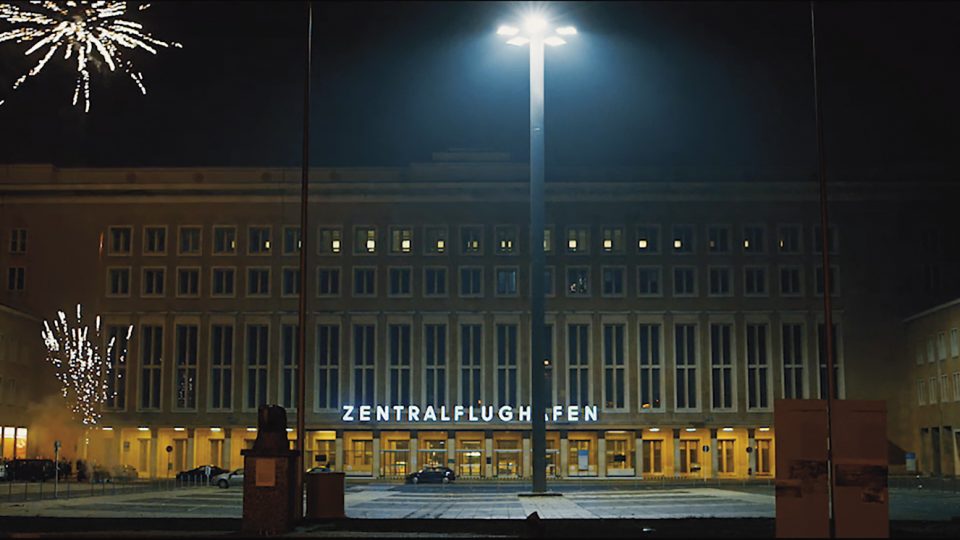
I have a thing for Sophie Calle. So does my husband. Since we’ve known her photographs we have been fascinated by her lurking, stalking style and secretive subject matter. Calle is a voyeur, but the thing is — her photographs often have no people in them. Instead, she shows empty hotel rooms. But then there’s people’s stuff. Underwear, notes, leftovers, waste that hotel guests leave behind. When they think no one (but hotel staff) is watching.
And who are these anonymous people? Calle offers little stories with her pictures, to enhance the drama of spying, of obsession, but ultimately the empty hotel rooms have a whiff of nostalgia about them. They affirm the unknowable, and the fact that that Calle’s pursuit, on some level, is futile.
And that is what Calle’s film, Double Blind (No Sex Last Night, 1996), is like. She is obsessed with the American filmmaker Greg Shepard; in fact, obsessed enough to go on a road trip with him, through the States, and down South. Calle plays herself–or her alter ego?–the disgruntled, neurotic, sophisticated French woman, who is too debonair and scoffing for the small American towns she visits, but also somehow drawn to them, or at least, to her own half-baked theories about them (in other words, if there’s a role here to be played, it’s of a European snob); also liberated enough to know what and whom she wants (she wants sex, she says so many times, with Greg), but apparently also romantic (or traditional, dare we say?) enough to get hung up on the idea of marriage. She wants to marry Greg; or rather, once she says she does she feels she can’t back out, quite visibly a challenge.
But then the entire film is set up this way: Calle with a camera, filming Greg, Greg with a camera, filming Calle, each doing a voiceover, to counter-act, counter-punch. At one point, they sit next to each other in the beat-up Cadillac (which she keeps paying for to fix, since he has no cash), each holding the camera as it rolls, focused on the other’s face. A stand-off, just as deadly, metaphysically speaking.
Double vision. Double blindness.
An adventure, for sure. Calle is smitten with Shepard’s good looks, though she frames him as a naive, childish man (a quality that’s at least potentially off-putting). Shepard, for his part, sees through the worldly, nagging Calle, at least enough to know when he is being pressured for pressure’s (or the film’s?) sake.
It is odd that there should be so much pleasure in this little film, but watching it, one can’t resist thinking that to do what Calle and Shepard do–to let the other person unveil you, even as you duck–requires guts. No matter how performative.
Exhibitionism, talent. Both.
One day I’d like to ask Calle how it all connects. Film and photography. Which is the embryo of which.
Maybe it’s as Barbara Hammer said: Someone told her she’d be famous, because she was brave. Calle’s playing the curmudgeon, the middle-aged shrew, certainly feels brave. Or at least not caring, but that itself is a kind of exposure: Two people cunning themselves into a romantic game. Like two bad chess players, uncertain who calls checkmate.
We only get to watch. That is the voyeur.
Double Blind (No Sex Last Night, 1996) screened as part of Film at Lincoln Center’s program, Another Country: Outsider Visions of America

